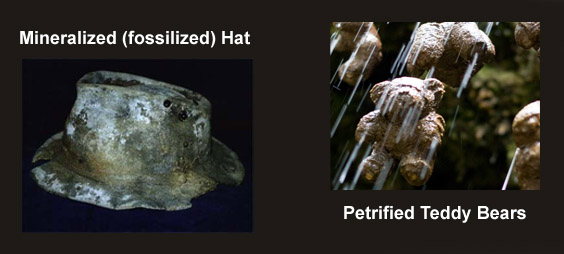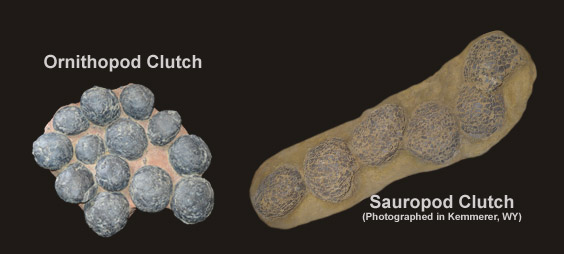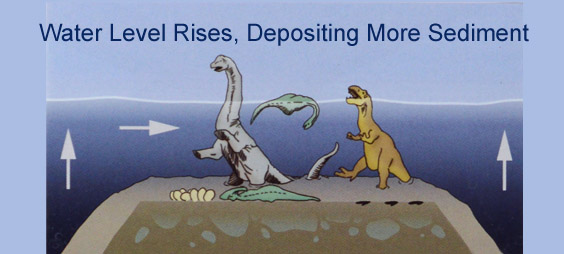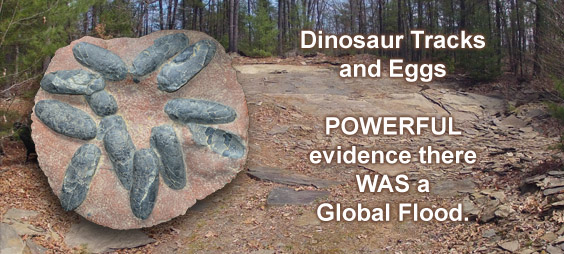
Fossilization: Millions of Years?
No eggs are being fossilized today. Not reptile eggs. Nor crocodile eggs. Nor any type of egg, even when buried in mud or vegetation. No remains of eggs, such as broken egg shell or hatched eggs, are being fossilized today.
We should take a break here to mention that fossilization does not take millions of years. The process of fossilization is happening today. What we don't see are animal tracks being fossilized. Nor eggs or egg shell being fossilized.
"Exceptionally preserved sauropod eggshells Embryos have few hard parts and they decay away to nothing very quickly.discovered in Upper Cretaceous (Campanian) deposits in Patagonia, Argentina, contain skeletal remains and soft tissues of embryonic Titanosaurid dinosaurs. To preserve these labile embryonic remains, the rate of mineral precipitation must have superseded post-mortem degradative processes, resulting in virtually instantaneous mineralization of soft tissues. - Schweitzer, et.al "Molecular Preservation in Late Cretaceous Sauropod Dinosaur Eggshells" (2005)
In other words mineralization (the creation of a fossil) happened virtually instantaneously, meaning in days or weeks, not millions of years.
In his 1989 article published in the journal Geology Today David Martill describes how, under the right conditions:
“lithification [fossilization] was instantaneous and fossilization may have even been the cause of death.” - D.M. Martill, “The Medusa Effect: Instantaneous Fossilization,” Geology Today 5 (1989)
It does not take millions of years, or even thousands of years, for fossils to form. So what is it that is needed, that's not happening today? The answer: rapid burial deeply in sediment with the necessary chemical properties. Rapid and deep, yet gentle burial is required to preserve a footprint or egg from scavengers, weathering, and other forces that might damage it. That's not happening today. It has not happened throughout history, except during the global flood described in Genesis in the Bible.
Teddy Bear image credit: Mick C - Image cropped - CC License.


